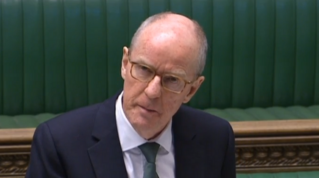To paraphrase Oscar Wilde, to lose four education ministers in 24 hours looks more like carelessness than misfortune.
The carelessness in this instance is of course Boris Johnson’s, whose ongoing leadership crisis has resulted in Nadhim Zahawi’s elevation to chancellor, and the resignations of ministers Will Quince, Robin Walker and Alex Burghart.
It leaves the Department for Education facing a fresh bout of disruption as new ministers, led by newly-promoted Michelle Donelan, learn their briefs and sort out their priorities.
And what a lot there is to sort out. Centre stage is the schools white paper which sets out very ambitious targets for raising literacy and numeracy attainment by 2030, as well as the considerable challenge of restructuring the entire education system to become MAT-led.
There is no additional resource to achieve the attainment targets – which in order to be achievable at all obviously require substantial extra support for children, especially those with special educational needs, those from disadvantaged backgrounds, and those particularly affected by the pandemic. Neither is there any real sense of how the envisaged major restructure will be achieved. Much of that detail is left to be worked out by the recently announced regulatory and commissioning review.
To make matters more confused, a large section of the schools bill which is meant to underpin elements of the white paper has been withdrawn.
And then there are the issues that the government appears to be attempting to ignore, but which are actually the real and pressing problems facing schools and colleges.
The sector needs stability. Instead there is chaos.
The first is a crisis in recruiting and retaining teachers, leaders and support staff. Schools and colleges are experiencing very severe problems in filling vacancies. This not only makes the aforementioned attainment targets near-unattainable but puts existing standards gravely at risk.
A key element of this crisis is the question of teacher and leader salaries, which have been eroded in real terms by a fifth since 2010 by a succession of government-imposed pay freezes and below-inflation awards.
This issue will reach a critical point before the end of the summer term with the expected recommendation of the School Teachers’ Review Body for the 2022/23 pay award, and the new secretary of state’s response. If this falls substantially short of inflation – as looks likely for many pay grades – this could lead to both short-term disruption from industrial action and much more significant longer-term disruption of a worsening teacher supply crisis.
Then there is funding. Schools and colleges are facing huge rises in energy prices, as well as ongoing costs in covering for Covid absences with supply staff – and there is a fresh spike in infections happening at the moment. They will struggle to afford the cost of any pay awards unless they are fully funded by government, let alone the substantial rise that is needed to improve recruitment and retention. The government will insist that it has increased the level of funding, but it knows full well that this comes after a decade of real-terms cuts which has impacted provision. If it does not fully fund next year’s pay award, it is inevitable that there will be more cuts.
All of this means that now – more than ever – the education sector needs political leadership which is strong, stable and clear-sighted. Instead there is chaos.
And unfortunately there is nothing new about this. We have had six education secretaries in the past eight years (seven if you count the final days of Michael Gove’s tenure). Nadhim Zahawi was in post for less than a year. Yet this is a brief that requires a deep understanding of a complex sector. In recent years incumbents have hardly had time to find out where the toilets are located. It is not a recipe for the continuity that the sector needs, and frankly the political merry-go-round that has become commonplace is simply not good enough.
Thank goodness schools and colleges are not run in the same way as government. If they were, they’d have been placed in special measures long ago.
















Your thoughts